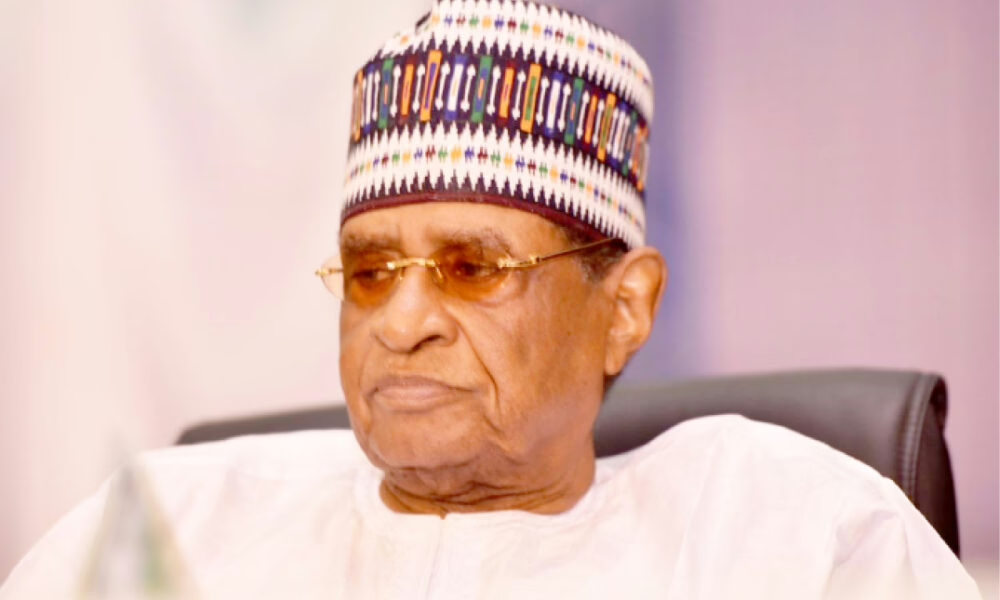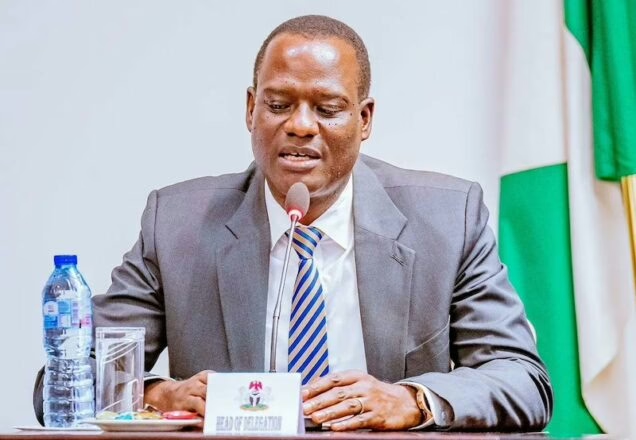The revelation by the Ondo State Commissioner for Information, Bamidele Ademola-Olateju, that the presidential intervention in the state’s political crisis climaxed in demanding a signed resignation letter from the Deputy Governor, Lucky Aiyedatiwa, should have caused an outrage. There is no circumstance under which a deputy governor handing over his pre-signed resignation to the president can be deemed as freely given consent. In a place where their democracy does not begin and end with seizing power through elections, placing a public officer on tenterhooks such that he can be removed on a whim would be a scandal. But of course, this is Nigeria. Who dares tell President Bola Tinubu that he overreached himself by that move?
The case of Governor Rotimi Akeredolu is about the third major instance of a public officer resolutely holding on to office while battling a protracted sickness that keeps him away from his duty post, and Nigeria is still not any closer to institutionalising the means of addressing the crisis that attends such situations. We have, in fact, slid from triggering the “doctrine of necessity” to an informal means of getting a patriarch-president to resolve issues as if this is an fight. What is being touted as a “political solution” to the Ondo crisis robs everyone of the opportunity to resolve the crisis based on a codified procedure.
By getting a higher power to stifle the political agents whipping up crisis, the president merely elevated the ad hocism of wringing out a pre-signed resignation letter out of a political agent above the rational means provided by the constitution. When we have another case like this one in the future (a matter of time), we will not have developed enough the habits that ultimately ingrain the culture of democracy. We will be more likely to fall back on quicker resolution through informal or quasi-formal means. While the crisis in Ondo has been doused for now (at least until the coming election when the question of succession will arise), we are not necessarily better off for it. Neither Ondo nor Nigeria gained anything from the supposed resolution.
Akeredolu’s tenure continues for roughly another year, and he will remain in Ibadan, Oyo State, from where he will be administering the state from his sickbed. Bringing up the morality of an arrangement that allows a governor to oversee his constituents from a remote location expectedly triggers all kinds of sentiments that obfuscate what is at stake. On a good day, Nigerian politics comprises many old men understandably conscious of their own impending senescence. The moral position they take in these situations is dictated by an uneasy awareness of their own biological fallibility.
When an ailing leader clings to power, the structure of power and authority becomes distorted; all manner of self-seeking agents arise to take advantage. Responding to media reports that some nefarious agents are exploiting the governor’s condition to forge his signature, Bamidele-Olateju reassured us that Akeredolu still functions as the governor. Media reports quoted her as saying she sent two files to the governor, which were returned (approved) within a week. But since Bamidele-Olateju did not physically witness him treat those files, how could she say that someone did not truly take advantage of Akeredolu’s condition to act on his behalf? Besides, is signing files all there is to Ondo State governance?
Apart from his prolonged absence from the state, the governor is hardly seen in public. From various media reports and accompanying images, his condition has taken a toll on him. No one can expect a man in his condition to brainstorm ideas or superintend activities. It would be highly insensitive to ask him to sit at extended meetings to debate policies. Under a different set of circumstances, his insistence on defying the reality of biological toll would be inspiring. When such stubbornness is extended to the political arena, we can no longer parse it as a narrative of an individual’s fierce will in the face of constraining reality.
After the instances of late President Umaru Yar’Adua between 2008 and 2010, and that of ex-President Muhammadu Buhari, I am afraid that these awkward situations have come to stay. They have become part of our political culture and resolving them going forward will be done without recourse to either the letter of the law or even ethics of public representation. The case of Yar’adua was sensational because the situation was novel for a civilian president. His associates did not quite know what to do and they subjected the man to various undignified treatment in the name of extending his rule for as long as possible. From proving his life through signing the supplementary budgets from his sickbed in Saudi Arabia to eventually opening him up to private observations of his conditions, he was serially exploited.
Then came the Muhammadu Buhari administration where the helmsman spent almost a cumulative one year abroad getting treatments. By this time, we had become familiar with the routine: the denials, the gaslighting, and the belligerence of media aides who arrogantly remind us that it is the 21st century and the president is at liberty to work from anywhere in the world, including a United Kingdom hospital bed.
The hypocrisies of the Yar’Adua years and the absurdities of the Buhari era converge on the present situation. Now that he faces a similar situation, Akeredolu has been reminded of his exact words to Yar’Adua when the latter was sick: if you love your country, you should resign. Now that it is his turn to prove that a state is greater than an individual, he cannot live up to the ideal he preached. Just like in the time of Yar’Adua where we detected the “proof of life” through his signing documents, we know all is well with Akeredolu too because he signed (and approved) two files within a week! Also, similar to how we were told that Buhari could rule from a remote location, Akeredolu also governs from somewhere in Ibadan. His aides say as long as people get their salaries on time, what does it matter where their leader is?
History incessantly repeats itself in Nigeria either because students never take its lessons, or it is just a bad teacher.
Some of these issues, of course, are dictated by the nature of our politics. Even if Akeredolu thinks he ought to end the farce and give up his office, he will be reminded that he holds power on behalf of the ethnic group he represents. In Nigeria, people hold—and hold on to—power on behalf of their respective tribes. Akeredolu, for instance, not only represents the state as a leader, but also represents a specific constituent within the state who consider themselves empowered through him. To give up before his time is up denies them the vicarious pleasure of being in power for the length of time they think they deserve to spend in that office. While they might not be enjoying what they have due to the condition of their representative, they at least get some delight in seeing that another (often, opposing) group does not have it.
As for the political solution of asking a deputy governor to sign and submit a resignation letter, I cannot help but wonder at the cunningness. I frequently marvel at how African leaders can get around any legal and juridical impediment to get power but cannot extend such genius to solve economic and development issues. Yes, they temporarily resolved this problem but what happens next time? The day is still coming when the president will meet his match in a deputy who is ready to stake the limited power of a deputy governor for a showdown. That is the day you run the limits of coercive tactics.











